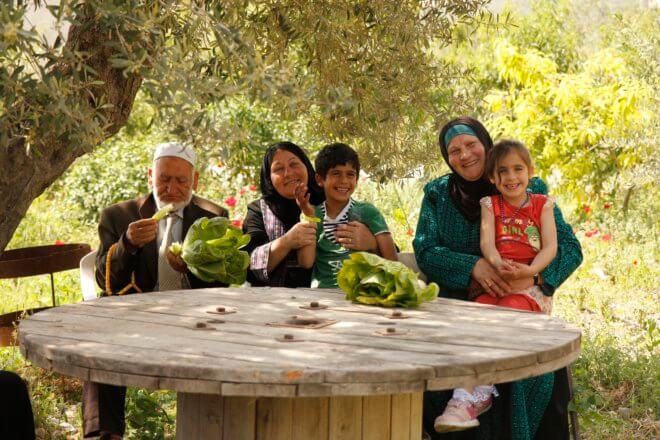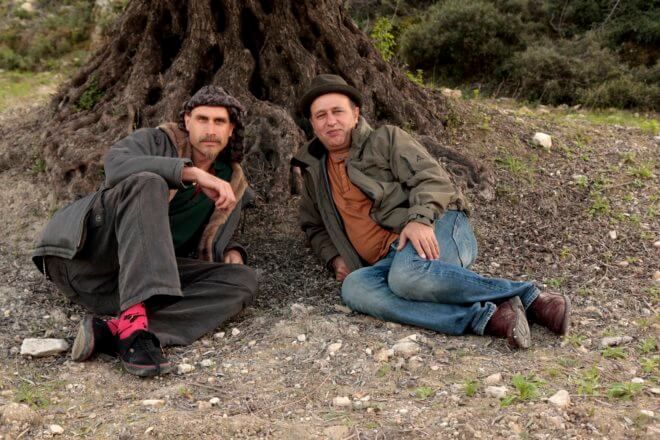Preserving trees, tradition and livelihoods in Palestine.
This article is excerpted from Dr. Bronner’s 2017 All-One Report.
In 2004, I was returning to Palestine from the US to conduct anthropological research for my doctorate. As I traveled through the land—the Jenin, Nablus, and Ramallah areas of the West Bank—I noticed a number of uncultivated olive tree terraces. At the time of my visit, Israeli occupation forces had fragmented Palestinian areas into multiple regions, and most farmers were not able to reach marketins in local cities, much less international markets. Occupation forces were also cutting down our trees, and Israeli settlers were harassing Palestinian farmers in orchards near settlements and their access roads—an ongoing problem. Meanwhile, olive oil prices plummeted to below $2 per kg, making it no longer feasible for farmers to sustain tending them.
Olive trees are the most important crop for Palestinians’ food security and cultural representation. They are the symbol of our identity. The trees connect us to our land, our history, and to past generations. They also link us to future generations, to our children and grandchildren. Our foods as well as our social and cultural traditions have grown out of our relationship to the land. If these trees and traditions are compromised, so too are we as a community, as a people.

To create an environment in which the olive crop could be saved, I turned to fair trade, building and networking village-based cooperatives to establish the Palestine Fair Trade Association. I then founded Canaan Fair Trade with a mission of sustaining the livelihoods and ecosystem of Palestinian rural communities. In 2005, we started exporting to Canada, the UK, and the US, selling our olive oil through fair trade shops and community organizations.
A year later David Bronner called to ask about our fair trade olive oil. Dr. Bronner’s understood our social mission and the challenges that surround our farmers’ production, and extended helping hands in overcoming and navigating these challenges. They first helped us achieve fair trade and organic certifications, which gave us a great deal of recognition in the marketplace and translated into sales and more market venues open to our farmers. Our partnership with Dr. Bronner’s made our new project a significant force in Palestine’s olive oil sector.

While market olive oil prices were at 8 Israeli shekels (ILS; 1 $US=3.793 ILS) in 2004, in 2005 we paid farmers what we calculated to be the minimum sustainable prices of 16 ILS/kg. With Dr. Bronner’s request for 60 tons from the 2006 harvest, we raised farmers’ payment to 20 ILS/kg. Between 2006 and 2016 Dr. Bronner’s order grew from 60 to 420 tons, and local market olive oil prices have not dropped below sustainable levels since.
Though Dr. Bronner’s sources our olive oil for their organic and fair trade soaps, they also helped to nurture one of our most precious food sources, and save one of the longest-giving regenerative ecosystems and farming traditions in the world. And together we gave the world a window through which to see Palestinians as custodians of these sustainable farming traditions—an inspiring journey that has injected life and regenerated hope throughout Palestine’s farming community.